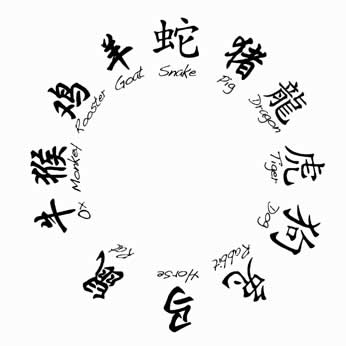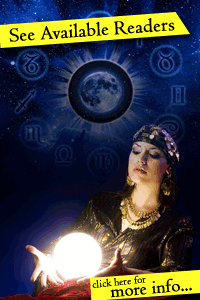Credit Card Callers
OPERATOR ASSIST
Available 10 am till 6pm daily AET for bookings and Issues.
SBilled as Access Positive
*You must accept our Terms of Use
Money Back Guarantee
If you are not 100% happy with the reading we will give you a Full Refund. Available for credit card clients. Please call the Helpdesk on 1800 222 362.

Home > Horoscopes > The Basic Tenets of Chinese Astrology
The Basic Tenets of Chinese Astrology
If you regularly follow your birth sign on the daily horoscope column in the newspaper or magazine, then perhaps you could consider yourself a believer of “astrology”. Well, what exactly is astrology? According to experts, astrology is a philosophy which asserts that the movements and the alignments of the sun, moon, planets and other celestial bodies have a direct or indirect effect on a person’s personality (and perhaps their fortunes too). But while the West views or interprets astrology in a different way as compared to the East, both however still share the same concept, wherein interplanetary alignments or movements have a major effect on the lives of humans, plants and animals.
Astrology refers to a philosophy, which asserts that the movements and alignments of the sun, moon and other celestial bodies have either a direct, or indirect effect, on an individual's personality, as well as his or her life's fortunes and patterns. And while the interpretation of astrology and its related facets are interpreted differently by different cultures and traditions, each culture still affirms the idea that inter-planetary movements and distances have a profound effect on the lives of both plants, animals and human beings. Here are some basic facts on how the Chinese view psychic astrology.
Chinese Astrology’s Roots
According to most Chinese astrology experts, legend has it that Buddha was believed to have summoned all the animals in the world to a meeting. However, only 12 animals were able to arrive on time; thus these 12 animals were given their own zodiac sign. Chinese astrology was believed to have been created at a certain point in the 2nd century, during the reign of the Han Dynasty. The astrology system was created and based on the age-old principles of the “Yin and Yang”, which described how opposite or contrary forces complement and interdependent in the natural world. Among the tangible examples include fire and water, hot and cold, life and death, sun and moon, male and female, and so on.
Early Years of Chinese Astrology
Chinese astrology is believed to have originated between the 2nd century BC, during the reign of the Han dynasty. This astrology system is closely based on the Asian philosophy of theory of harmony between heaven, earth and water, as well as the famous principles of the “Yin and Yang'. During the Han Dynasty, all the basic and popular characteristics or elements of Chinese culture were incorporated together, to form the new and more precise astrology system. The new belief system mixed together the Theory of the five Elements, Heaven and Earth, the Yin-Yang philosophy as well as Confucian ideas and principles on morality.
During the reign of the Han Dynasty, all the popular and common characteristics or elements of Chinese culture were analyzed, and incorporated to create a new and more culturally-acceptable astrology system. This newly-created astrology system blended together the Yin-Yang philosophy, the “Theory of the Five Elements” and a lot of Confucian ideals, as well as the principles of morality. In this astrology system, the person’s destiny and personal, health or financial fortunes, were greatly influenced or determined by the movement and position of the sun, moon, the planets and other celestial bodies, especially during the individual’s time and day of birth. The person’s horoscope or zodiac sign is also depicted by twelve animals, and these are the rat, ox, tiger, snake, rabbit, goat, horse, rooster, monkey, dog and pig.
And unlike the horoscope or zodiac calendar or chart of the West, the Chinese calendar has a “cyclical” dating method or system, which repeats after sixty years. The Chinese zodiac calendar is also based on 2 cycles that complement and interact with each other, and these are the 12-part zodiac and the five elements (metal, water, wood, fire and earth). The five elements are then assigned to the twelve animals on the horoscope, and this gives a unique set of characteristics or traits to each animal year.
 The Chinese Zodiac
The Chinese Zodiac
In Chinese astrology, an individual;s destiny and fortunes are generally influenced and determined by the position and movement of the major planets and celestial bodies, as well as the positions of the sun, moon along with the asteroids and comets, and is interpreted based on the person's date and time of birth. This zodiac system is actually thousands of years old, and is primarily based on a 12-year lunar cycle. A person's sign is determined by the year in which he or she was born, and each sign of the people who were born under it are depicted or portrayed by 12 animals – the rat, ox, tiger, snake, rabbit, goat, horse, rooster, monkey, dog and pig. According to Chinese folklore, these twelve animals where chosen by Buddha, because when Buddha was near-death, these animals visited him. Thus, he honored them by representing each animal on the twelve stages, or phases of the Chinese Zodiac.
What Each Chinese Zodiac Sign Represents
Here's a brief rundown of the meaning and representations of each of the 12 Chinese Zodiac animal signs. The Rat is the first of the zodiac signs, because legend has it that it won the race among all animals. The Rat is a charming and sociable person. Its negative traits are intolerance and selfishness. The Ox is dependable and hardworking, while its negative traits are rigidness and stubbornness. The Rabbit is artistic and friendly, while its negative traits are moodiness and self-indulgence. The Dragon is loyal and generous, while its negative traits include arrogance and brashness. The Snake denotes wisdom and strength, while its negative attributes include loneliness and eccentricity. The Horse is considered witty and agile, while its negative traits include anxiousness and rudeness. The Goat's positive traits include sincerity and determination, while its negative attitudes include pessimism and indecisiveness.
The Monkey represents intellect and sociability, while its negative traits include jealousy and receptiveness. The Rooster represents decisiveness and practicality, while its negative attributes include egotism and abrasiveness. The Dog represents loyalty and affection, while its negative traits include cynicism and fretfulness. Lastly, the Pig represents patience and sincerity, while its negative traits include materialism and gullibility.
Disclaimer
This psychic site and its owners are not liable for any direct, indirect, incidental, consequential, or punitive damages arising from using this site, the psychic contractors listed on it, or its content. By giving us your email address you agree to allow us to send you occassional maketing materials. We will never pass your details to another company.
Terms of Use
You must accept and agree to our Terms of Use before using our services.
CALLING FROM OVERSEAS

PSYCHIC RELATED TOPICS
- Angels
- Books and Resources
- Pet Psychic
- Psychic Ability
- Psychic Dreams
- Psychic Glossary
- Psychic News
- Psychic Powers
- TV Psychic

Genuine Psychics can help you find solutions to any stressful situation


















